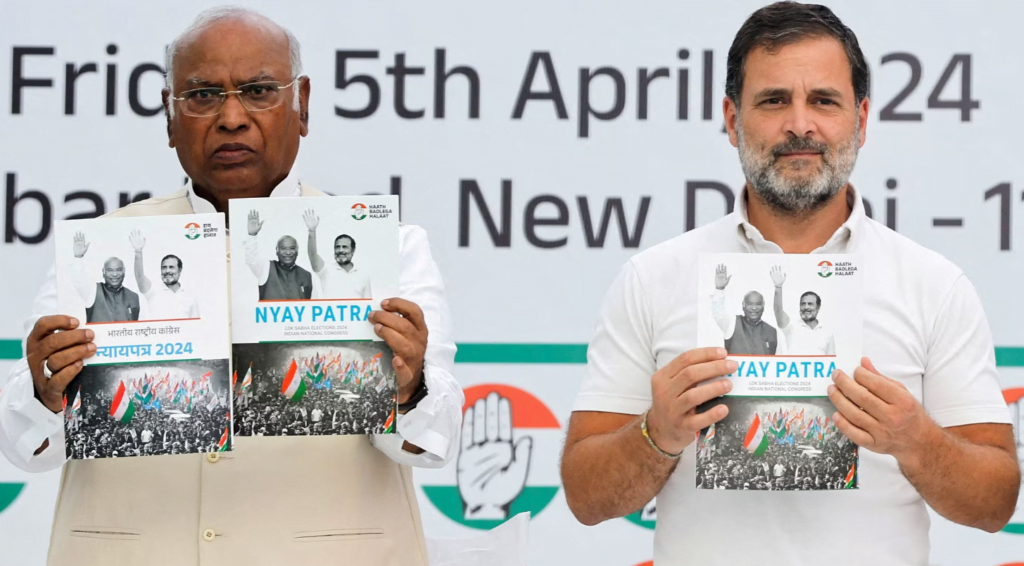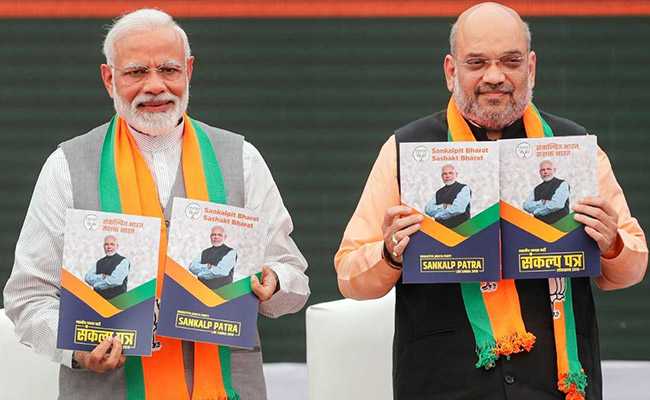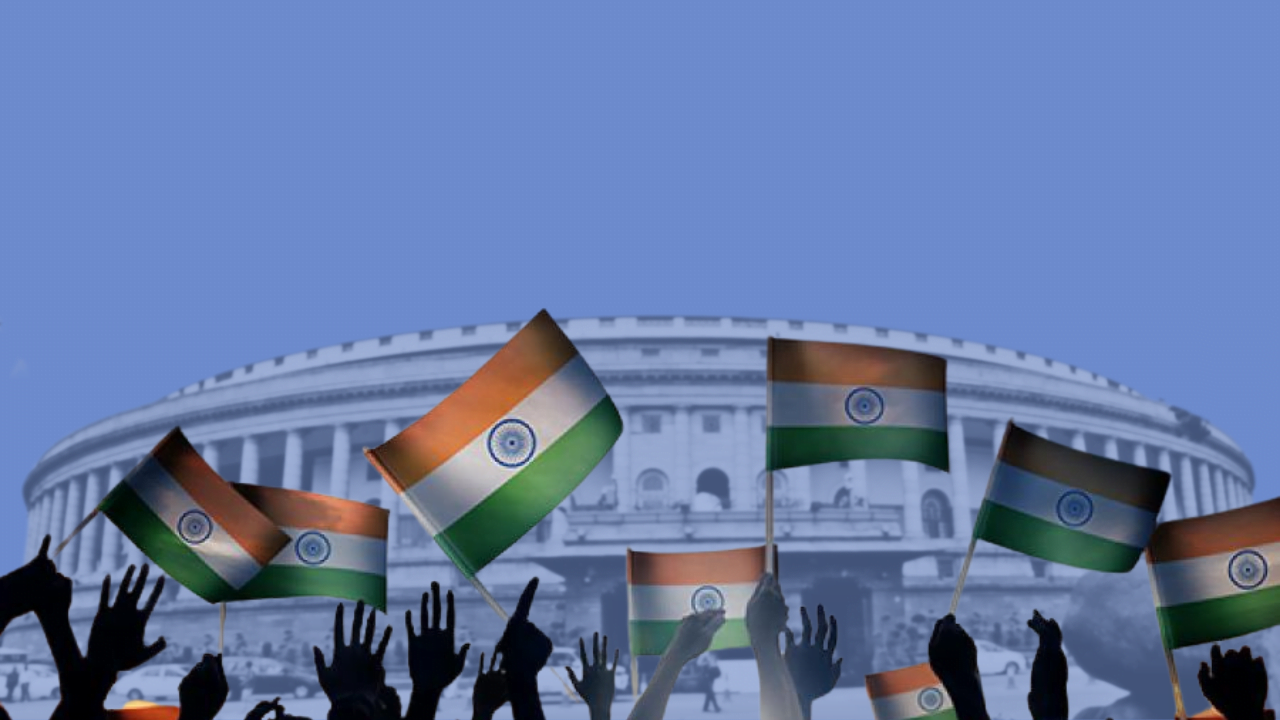In the grand theatre of Indian democracy, where the will of the people reigns supreme, one document stands as the true harbinger of change – the election manifesto. This sacred scroll, transcending mere promises and political rhetoric, serves as a blueprint for the nation’s future, a tapestry woven from the threads of vision, ideology, and aspirations. It is a pact between the governed and those who govern, a testament to the enduring spirit of democracy that has guided India’s journey since its inception.
Fostering transparency and accountability
The tradition of issuing poll manifestos in India dates back to the pre-independence era, with the Indian National Congress invoking its provincial election manifestos to advocate for public ownership of crucial sectors and mineral resources. These manifestos were even invoked during the Constituent Assembly Debates, with stalwarts like Mahavir Tyagi citing them to push for alcohol prohibition, underscoring their significance in shaping the nation’s future.

While one might assume that manifestos serve as a “monitoring device,” enabling voters to hold parties accountable for unfulfilled promises, reality paints a different picture. Political parties are not legally obligated to fulfil their manifesto promises, as affirmed by the Supreme Court in 2015. Despite this lack of legal recourse, manifestos remain a crucial tool for promoting transparency and deliberative democracy.
Studies in advanced economies like Sweden, Spain, and the Netherlands have shown high rates of manifesto promise fulfilment, underscoring their significance in strengthening democratic processes. In India, however, there is a need to raise awareness about manifestos and their potential as a tool for fostering accountability. Initiatives by organizations like the Association of Democratic Reforms (ADR) have helped monitor elections and promote transparency, but manifestos continue to be overlooked as a means of promoting accountability.
A closer examination of manifestos reveals intriguing trends. The share of falsifiable promises, those that can be objectively verified, has seen a significant rise in the UPA manifestos of 2014 and 2019, indicating a potential shift towards more transparent and accountable governance. However, their electoral defeats suggest that this approach may have had a limited impact on voters’ perceptions. Simultaneously, both the UPA and the NDA have witnessed an increase in the share of falsifiable promises over time, with the NDA’s 2014 manifesto exhibiting a remarkable dip. Moreover, in 2019, a substantial 30-40 per cent of promises made by both parties were unfalsifiable, raising questions about their commitment to transparency and accountability.
Shaping the national discourse
Manifestos play a vital role in shaping the national discourse and setting the agenda for public debates. They highlight the pressing issues and challenges facing the nation, offering solutions and strategies to address them. By presenting their manifestos, parties initiate a dialogue with the electorate, inviting scrutiny, critique, and informed discussions on their proposed policies.

It is through this process of deliberation and engagement that manifestos truly come alive, transcending their role as mere campaign tools and becoming instruments of democratic participation. When voters actively engage with manifestos, they become partners in the nation-building process, contributing their perspectives and holding parties accountable for their commitments.
Moreover, manifestos serve as platforms for parties to articulate their ideological foundations and core values, providing a comprehensive vision for the nation’s future that encompasses economic, social, and developmental aspirations. They act as roadmaps for governance, guiding policy formulation and decision-making processes, ensuring that the promises made on the campaign trail are translated into tangible actions that benefit the people.
Chronicling India’s political evolution
Furthermore, manifestos serve as historical records, chronicling the evolution of political thought and the shifting priorities of the nation over time. They offer valuable insights into the socio-economic and cultural landscape of a particular era, enabling scholars and researchers to analyze and understand the trajectories of governance and policy-making.
For instance, the Congress Party’s 1971 manifesto paved the way for the abolition of privy purses and the nationalization of banks, reflecting the nation’s shift towards a more egalitarian and socialist agenda. Similarly, the BJP’s 2014 “Sabka Saath, Sabka Vikas” manifesto promised inclusive development for all, reflecting the party’s vision of a resurgent and prosperous India.
As India continues to strengthen its democratic foundations, the significance of manifestos cannot be overstated. It is through these documents that the spirit of democracy finds its truest expression, where the aspirations of the people are articulated, debated, and ultimately, transformed into concrete actions that shape the nation’s destiny.
However, it is essential to recognize that manifestos are not merely static documents; they are living, breathing entities that evolve with the changing needs and aspirations of the electorate. As the nation navigates through new challenges and opportunities, manifestos must adapt and reflect the changing times, ensuring that they remain relevant and responsive to the people’s concerns.
Furthermore, the effectiveness of manifestos lies not only in their content but also in their dissemination and engagement with the electorate. Political parties must make concerted efforts to educate and engage voters on their manifesto promises, fostering a culture of informed decision-making and active participation in the democratic process.
Ultimately, the true power of manifestos lies in their ability to bridge the gap between the governed and those who govern, fostering a sense of collective ownership and responsibility for the nation’s future. When citizens actively engage with manifestos and hold parties accountable for their commitments, it strengthens the fabric of democracy and ensures that the aspirations of the people remain at the forefront of governance.
As India continues its democratic journey, the manifesto mandate remains a beacon of hope, guiding the nation towards a future where the will of the people reigns supreme, and where the promises made on the campaign trail become the actions that shape a better tomorrow.
About the author(s)
Fat, neuro-diverse, and queer are the foremost words Sahil uses to describe themselves. A full-time undergraduate student of Economics at the University of Delhi, Sahil is a Laadli Media awardee of 2023. They are also a recipient of the Reliance Undergraduate Scholar for 2023 and various prestigious fellowships including Global Citizen Year Academy '22 and Civics Unplugged (Civics Innovator Fellowship ’22). Sahil regularly writes for Thred Media, and also for Youth Ki Awaaz as an alumnus of the Justice-Makers WTP ’22.
Sahil is part of UNICEF India's YuWaah Young People's Action Team (YPAT) 2023 and the YLAC Ambassador for Delhi.





